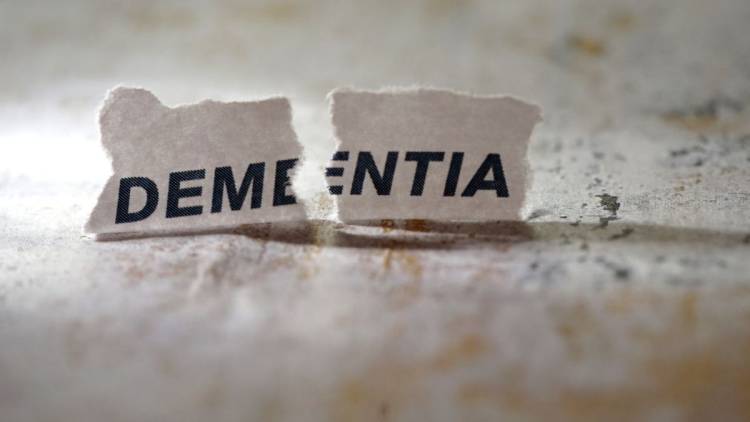There are many different types of dementia and one of the most frightening types is called Lewy Body Dementia. When someone in your family is diagnosed with this disorder, it’s common to ask questions about the disorder. Probably the very first question is “What’s the life expectancy for someone with Lewy Body?”
Unfortunately, it’s uncommon (22%) for families of those with this disorder to have a conversation with their physician that is helpful and covers the topic of what to expect at the end of life. Instead, family members report things like this:
- “When we first got the diagnosis, it was like here’s your diagnosis, and that was it. We had to figure out what that meant.”
- “The doctor never said my wife was going to die. I think that was important for us to know. The doctor should be very specific with the caretaker. Telling me she was terminal would have helped me make it important to talk and think about. And maybe we could have had help with hospice a lot sooner.”
- “We had no clue that the end of his life would come on so fast. Even the doctors said they were shocked he went down so fast.”
- “After a surgery putting in a stent in his carotid artery, that was it. The next morning he couldn’t walk, fell that evening at home, then he had pneumonia, was in the hospital and within two weeks, he was dead.”
- “We didn’t realize it was the end of his life. He fell at home, was hospitalized, went into hospice and then died. I had no idea that he was so close to dying.”
- “She went three days once without being responsive and then rebounded and had many near end-of-life experiences in her last nine months of life.”
- “I wish at the very beginning – when the diagnosis was made– that we had done a conference call with the hospice doctor explaining everything to the whole family; what was happening to her, what to expect, the timeframe, etc. We had several family members that were in denial that mom was going to die. It would have helped.”
- “I think with this disease, the person should be allowed to go on hospice but have therapy and exercise to keep their brain going as much as they can.”
- “I swear that the galantamine was working for her cognitively but when she started refusing to take anything (and stop eating and drinking), that’s when I really started noticing the decline.”
- “It was difficult to predict when she would die. She had stopped eating for about a week and was slowly going down. And then hospice kept saying death was any minute, yet she held on.”
- “She had negative reactions to morphine
What is the life expectancy of someone with this disorder? That’s one of the main questions you want answers to.
Part of this problem is that caregivers of those with dementia simply don’t know what to expect. Once the awareness of this is improved, that’s when the patients can be made more comfortable at the end of life.
Life Expectancy for Lewy Body Dementia
According to MedLine Plus, the life expectancy for someone with Lewy Body dementia is roughly 5-7 years after diagnosis. The difference lies in the starting health of the individual and how far along their disease they were first diagnosed.
According to a Mayo Clinic study in JAMA Neurology, there are reasons why patients with Lewy Body Dementia don’t have a good prognosis for their future.
In their study comparing those with Lewy body dementia, Parkinson’s disease, Parkinson’s disease dementia, and multiple system atrophy with parkinsonism, those with Lewy Body dementia had the second shortest lifespan.
They died four years earlier than the general population while those with multiple system atrophy with parkinsonism. Those with Parkinson disease dementia died three and a half years earlier, and those with only Parkinson disease died one year earlier.
What is Lewy Body Dementia?
This type of dementia is the second most common type of dementia in the U.S. and affects about 1.4 million Americans. Their lives are shorter than those with Alzheimer dementia and Parkinson’s disease.
The difference between this type of dementia and Alzheimer’s is that in Lewy Body Dementia, the symptoms fluctuate on a daily basis. In Alzheimer’s disease, the symptoms gradually worsen each day.
Another difference is that in Alzheimer’s disease, the patient’s memory may be good although they are confused at times, while in Lewy Body Dementia there are hallucinations and memory loss occurs in the later days of the disease.
Is Lewy Body Dementia Always Fatal?
When Lewy Body Dementia symptoms progress to the point of swallowing difficulty and the stop of eating and drinking, this will lead to death. It may not be predictable in certain terms such as in 3 days or 14 days, she will pass away, but it is imminent. There are other signs death is near for dementia that can indicate the end is near.
However, there are things you can do to make sure your loved one is comfortable up until the end.
How Lewy Body Dementia Causes Death
Those with Lewy Body Dementia have more than double the likelihood of respiratory death as those with Alzheimer’s disease dementia. The most common cause of death is failure to thrive (65%) followed by pneumonia and swallowing difficulties (23%). Once the person’s nutritional needs are not being met, you can expect a rapid decline based on nutritional deficiencies. Since vitamins and minerals are essential for health, their lack can lead to death. Many of the symptoms those with this disorder exhibit are ones that are obviously related to vitamin and mineral deficiencies.
16 Signs of Lewy Body Dementia
One of the largest studies on Lewy Body Dementia followed 558 residents with Lewy Body Dementia. The doctors collected data on the deceased residents, counting how many signs of Lewy Body Dementia they had. The patients had an overall survival time of 29 months. Those who had 0-1 signs lived 8 months longer than those with 2-4 signs of the disease. The risk of dying was also significantly higher in patients whose cognition was fluctuating daily, they had rapid eye movement sleep behavior disorder, balance problems or rigidity.
The researchers said that what’s the most important thing for health care professionals is to make sure the patients with two or more signs are diagnosed.
Here are the signs of Lewy Body Dementia they put on their list:
- Change in appetite, stopped wanting to eat unless actually being fed. Even so, eating less and less in common.
- Loss of ability to swallow which makes eating and drinking impossible as well as taking any types of pills, supplements or medications
- Weight loss
- Weakness and decline in physical strength
- Stiffness that has worsened
- Increased difficulty when walking, which makes falls easier to happen
- Sleeping a lot and not getting out of bed
- Severe decline in cognition
- Not talking very often yet there’s an increase in unintelligible noises
- Increased hallucinations
- Urinary and fecal incontinence
- Inability to dress, bathe or toilet without assistance
- Bedsores
- Recurring fevers despite antibiotics
- Congestive heart failure
- Body pain that can’t be stopped (state of health equal to or worse than death)
Looking at this list, here’s an idea of how these signs are connected to vitamin and mineral deficiencies:
| Sign | How It’s Related to Nutritional Deficiencies |
|---|---|
| Changes in appetite | Cause multiple deficiencies, especially a zinc deficiency. This affects immunity and skin healing. |
| Can’t swallow | The cranial nerve that controls swallowing is affected; lack of B vitamins and minerals to support the nerve contributes to this. |
| Weight loss | Lack of calories will cause weight loss. |
| Weakness and decline in physical strength | Protein malnutrition causes this sign. |
| Stiffness | Lack of calcium and magnesium causes this. |
| Difficulty when walking | Protein malnutrition results in this sign. |
| Sleeping a lot | Depression results from lack of B vitamins, the mineral lithium, and vitamin D. |
| Severe decline in cognition | Almost all nutrients are needed for the brain to operate properly, including omega 3 fats. |
| Unintelligible noises | —- |
| Hallucinations | Niacin and magnesium deficiencies are known to cause hallucinations. |
| Incontinence | —- |
| Bedsores | Protein calorie malnutrition results in the breakdown of skin. |
| Recurring fevers | Malnutrition causes deficiencies of zinc, selenium, vitamin A, vitamin C, vitamin D and vitamin E which affect immunity. |
| Congestive heart failure | Fluctuations in magnesium and other electrolytes can worsen heart failure. |
| Body pain | Magnesium deficiency may be associated with greater pain levels, as magnesium supplementation seems to decrease pain. |
What’s It Like At the Very End?
Family members who have gone through the whole process with a family member have reported what it was like at the end of the person’s life. These are the bedside signs they have recorded:
- shaking
- dark urine
- skin mottling
- shallow and irregular breathing
- gasping for air
- breathing stopped for a minute but then started again
Enhancing End of Life Care in Lewy Body Dementia Patients
Here’s a list of some things that have really made a difference in those whose loved ones passed away from Lewy Body Dementia:
- Play their favorite music
- Let them watch their favorite television shows.
- Read books or poetry to them.
- Massages.
- Print large photos of the family and place them in the room.
- Allow musicians to visit.
- Spend time outdoors in a wheelchair.
- Utilize pools.
- Hold their hand and talk to them.
Support Groups and Further Reading
Here are a few resources for you:
- https://lewybodyresourcecenter.org/
- https://www.lbda.org/additional-resources/
- https://www.nia.nih.gov/health/caring-person-lewy-body-dementia




